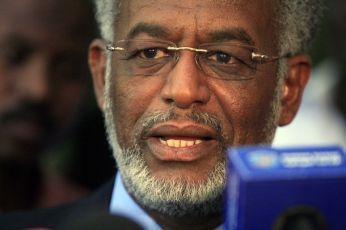Khartoum says oil deal with South Sudan depends on border security
January 18, 2012 (KHARTOUM) – Sudan’s Foreign Minister Ali Karti on Wednesday said that an oil deal with South Sudan is unlikely to be reached in light of the latter’s support to insurgents in border areas.

The collapse of the talks comes amid increased tension between the recently separated countries due to the absence of a deal on the transit fees that the land-locked South Sudan should pay for the use of Khartoum’s pipeline infrastructure to bring its oil to export terminals in Sudan’s red sea port.
Juba accused Khartoum of “stealing” its oil after the latter moved to confiscate portions of the southern oil shipped through its territories, claiming that Juba has not paid any fees since South Sudan seceded last year.
In an interview with Reuters, Karti said Khartoum would continue to confiscate what he termed as its right in southern oil as long as Juba remains unserious in reaching an agreement on transit fees.
“If they are not ready to sit down and conclude an agreement, we will take our right. We will take our entitlements,” he said.
According to press reports, South Sudan demanded that its northern neighbor pay an equivalent of 1.4 million barrels of oil to resume talks.
“Nobody can hamper us from taking our right. This is our entitlement,” Karti stressed.
Sudan’s oil-dependent economy has suffered a massive loss when South Sudan took with it 75 percent of its previous daily output of 500,000 barrels of oil when it seceded in July last year as per a 2005 peace deal that ended more than two decades of civil wars between the two sides.
According to Karti, South Sudan’s support for the rebels Sudan People’s Liberation Movement North (SPLM-N) in Sudan’s border states of South Kordofan and Blue Nile was hindering the talks.
SPLM-N rebels fought as part of the southern army during the war but they refused to disarm after the south seceded without a security arrangements deal, leading to the outbreak of the conflict in South Kordofan and Blue Nile last year. Juba denies Khartoum’s accusation that it is supporting the SPLM-N.
“If you are hosting rebels, preparing them against me, supporting them by munitions, by salaries, by everything, by training, by giving them all facilities. What shall I wait for? What shall I wait for you to do? I’m waiting for war,” Karti said.
He further claimed that Khartoum had monitored conversations proving that Juba was supporting SPLM-N fighters.
“We listen to them. They know that we listen to them. What kind of stupidity? You know I’m listening to what you say every day, and you go on talking about salaries, ammunition, supporting us, and bringing more tanks near the borders, and the rest,” he said.
The Sudanese minister opined that any oil agreement would be dependent on reaching a border security deal, including the marking of the borders.
“To me, it could be a holistic approach. A piecemeal way of doing things is not enough, and it proved not to be working. It’s better to begin with the top issues – the security issue to me is very important – and then the rest will be easy,” he said.
Meanwhile in Khartoum, the official spokesman of Sudan’s Foreign Ministry Al-Obeid Marwih described Pagan’s accusation that Khartoum was stealing oil as an attempt to score political points.
He added that the negotiation atmosphere was not encouraging and urged AU mediators to pressure the south to return to the negotiation table.
Similarly, Sudan’s Oil Minister Awad al-Jaz rejected Juba’s accusation of stealing oil, saying his country was merely taking its rightful share.
He explained that Sudan had resorted to confiscating southern oil after Juba brushed aside the proposals Khartoum put forward since June on the fees per barrel.
Sudan wants South Sudan to pay $36 a barrel to use the export pipeline, a demand Juba terms as “broad daylight robbery”
“We have observed patience in the face of all the malpractices since the signing of the Comprehensive Peace Agreement [CPA] and throughout its implementation, but unfortunately southerners are listening to others,” the Sudanese minister said in a hint at foreign influence on South Sudan.
Al-Jaz went on to criticize what he termed as South Sudan’s unresponsiveness to Khartoum’s proposals.
“We proposed a price for the barrel and we have never skipped any round of talks but we found no response from the other side” he said, warning that Khartoum’s patience has limits.
“We will not forsake our rights, and taking your rights is not a vice” the Sudanese minister said in reference to the south’s accusation of stealing.
(ST)
